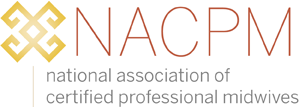Washington State – Midwives’ Lobby Day 2018
We are excited to share this update from the MAWS lobby day in Washington State. The Washington State Chapter of NACPM was intentionally designed to function in collaboration with the established state association, MAWS, with a vision for ever-deepening partnership and mutual support. Jen Segadelli serves as a liaison between the two organizations, sitting on the board of each. This update comes from Audrey Levine, NACPM co-president and MAWS board member:
You never know what you’ll miss if you don’t show up for Midwives’ Lobby Day…
This year, we had a record turnout: more than 80 licensed midwives, midwifery students, and healthcare consumers braved the rain and showed up in Olympia on January 18th. Many of you have probably already seen the video that captured the highlight of the day–and, some might say, one of the most memorable moments in MAWS’ history. Thanks to a good deal of behind-the-scenes finagling by our fabulous lobbyist, Amber Ulvenes, we got to sit in the House gallery and witness the unanimous vote in support of HB 2016, which would give midwives and doulas access to WA State prisons to provide voluntary prenatal and postpartum care. Several legislators spoke from the floor and sang the praises of the midwives who’d been there for the births of their babies or grandbabies. Then, the Speaker Pro Tempore asked us to stand, and MAWS received a standing ovation from the entire WA State House of Representatives. It was epic.
Meanwhile, over in one of the Senate hearing rooms, MAWS President, Neva Gerke, was testifying on SB 6304, a bill that would guarantee continued funding in WA State for the CHIP program, which the federal government had threatened to de-fund. SB 6304 and its companion bill in the House, HB 2660, would not only ensure that all children in Washington would have healthcare coverage; it also would guarantee prenatal care coverage for all childbearing people in the state. Both SB 6304 and HB 2660 are moving forward in their respective chambers.
In addition to talking about these bills with members and their aides, we asked for support for an amendment to the budget proviso that passed last year, maintaining the cap on the midwifery licensing fee. Since 2009, when this fee cap went into effect, the licensed midwifery workforce in Washington has grown by 40%. Due to misinformation that we received last year from the Department of Health, the amount we’d requested from the legislature during the 2017 session was insufficient to cover the shortfall in the Midwifery Program budget at the DOH. For the most part, members were very receptive to our request that an additional $50,000 be allocated this year to fulfill on the intention of the proviso. To our surprise, Senator Fortunato (yes, that’s really his name) decided after meeting with several of his constituents, that we shouldn’t have to come back every year and ask for a budget proviso to keep our licensing fee reasonable. So, he has introduced SB 6559 which would essentially put the midwifery fee cap into statute. Although it’s unlikely that the bill will go forward this session, it is encouraging that we have some support for a more permanent fix to our licensing fee issue.
We also spent time in our meetings with legislators seeding the concept of title protection for birth centers, sharing the legislative language we have drafted to protect the terms “birth center,” “birthing center,” and “childbirth center” in statute, and conveying the thoughtful process we are engaging in with other stakeholders, including the WA State Hospital Association (WSHA). The rationale for this effort is two-fold: 1) to protect consumers – we believe that families choosing a birth center for their care should be able to know what kind of care is actually offered in such a facility and what kinds of outcomes are achieved there; and 2) to preserve the integrity of the birth center model of care. The WSHA representatives we spoke with prior to session indicated that they understand our concerns, but they asked MAWS to wait until 2019 to introduce a bill so that they could have time to educate their members about the rationale for such legislation and give hospitals an opportunity to voluntarily re-brand as necessary. We agreed to do so—and heard from quite a few legislators how much they appreciated this collaborative approach.
Sen. Fortunato, however, was highly motivated to take action this year and decided to drop SB 6579. Although it is not at all likely that the bill will get a hearing this session, according to Sen. Fortunato introducing the bill this session conveys to WSHA and their members that MAWS is serious about this effort and that we have legislative support.


